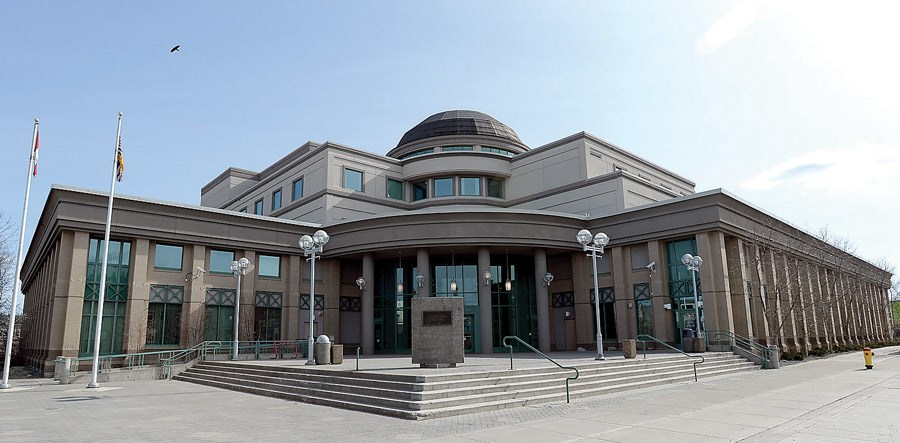The Coastal GasLink pipeline project is three months behind schedule thanks largely to opponents' efforts to block the work, a lawyer for the company told a B.C. Supreme Court Justice.
CGL is applying to have an interim injunction against impeding progress extended until the end of 2021 when the project is scheduled to be completed.
Opponents, largely in the form of Wet'suwet'en heriditary chiefs, claim they have the right to prevent access to an area south of the Morice River under traditional law.
Three days of arguments on the issue began Wednesday before Justice Marguerite Church at the Prince George courthouse.
Providing an outline of the company's position, CGL lawyer Kevin O'Callaghan said the company needs the Morice River Forest Service Road because it is the only way to reach the most difficult area of the project.
So-called section eight will go over steep and mountainous terrain in the form of the Coast Mountains and while other sections can be completed more quickly, O'Callaghan said it will take right to the late-2021 deadline to complete that portion of the project.
But he said an overland right of way into the start of section eight is currently only two kilometres long where it should be 12 kilometres by this point in time. He said blockades had meant reconnaissance and surveying was delayed from November-December to January, adding up to two months.
And once carried out, he said it was determined that five new bridges needed to be put into place, causing further delay.
Moreover, he said a work camp is not yet occupied due to delays, meaning 35 to 45 workers must travel four hours each day to get to the site and are being put up in area hotels. He said it works out to two days of extra travel time each week, adding up to an additional $1 million for CGL.
O'Callaghan also highlight the economic impact. The pipeline is being built to supply natural gas to the LNG Canada liquified natural gas plant in Kitimat.
Together, he said the projects add up to an estimated $40 billion with the pipeline accounting for $6.2 billion. He said benefit agreements have been reached with 20 Indian bands along the route, including the five Wet'suwet'en elected bands, adding up to $338 million over 25 years.
Contracts on the project add up to $620 million have also been awarded to First Nations and a further $400 million to other companies.
In terms of consulting with the Wet'suwet'en, O'Callaghan said CGL officials have been working to understand the First Nation's form of traditional governance by taking in presentations outlining the basis and attending workshops on Wet'suwet'en decision making.
O'Callaghan also noted there is disagreement over who holds various titles in the Wet'suwet'en traditional form of governance and urged Church to avoid getting caught up in that controversy.
"We say that the court should not enter into that fray...this is just not the venue to be deciding those issues," he said.



